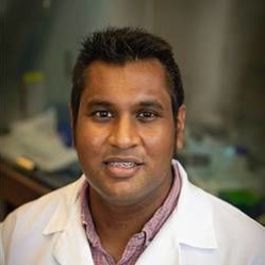Calls Now Open
2024 ADDF-Harrington + 2025 Harrington Scholar-Innovator Programs
December 08, 2023
As American and U.K. regulators approve the world’s first gene-editing treatment for sickle cell disease, Wisconsin scientists are researching how to use the same technology to treat two eye diseases that cause blindness.
Krishanu Saha leads the CRISPR Vision Program at the University of Wisconsin-Madison and is member of National Institute of Health’s Somatic Cell Genome Editing Consortium. His lab is specifically studying how to cure Best disease as well as Leber congenital amaurosis, one of the most common causes of blindness in children.
“All of the testing that we’ve done thus far shows a lot of promise that it can actually correct the defects in these cells. And so the task for us over the next five years is to formulate a medicine that could be used here in trials enrolling patients,” Saha said in a recent interview with WPR’s “The Morning Show.”
CRISPR is a ground-breaking technology that allows scientists to modify genetic code. In 2020, its creators won the Nobel Prize in Chemistry. Research using CRISPR is now underway globally to treat high cholesterol, cystic fibrosis, muscular dystrophy and other illnesses.

Ophthalmology, Rare/Orphan, Regenerative
University of Wisconsin - Madison
Gund Harrington